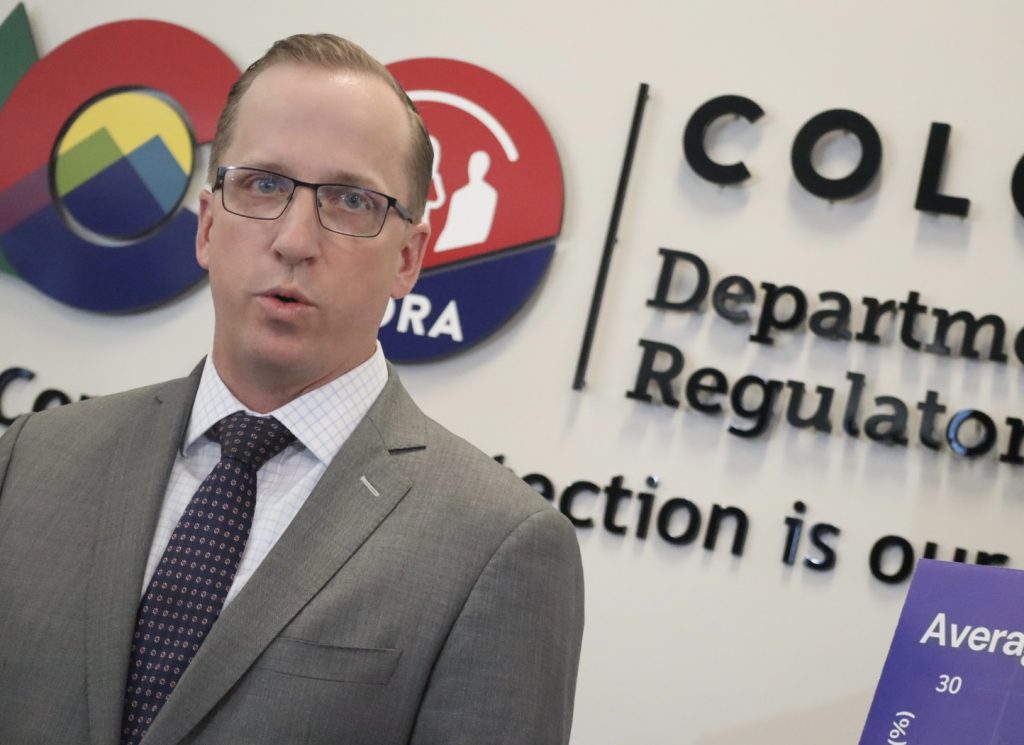Coloradans’ average health insurance premiums to double on state’s individual marketplace
Congress has so far failed to renew subsidies for Affordable Care Act plans that are set to expire at the end of the year and lead to a surge in out-of-pocket costs

Robert Tann/The Aspen Times
Coloradans who shop for their own health insurance will see, on average, a doubling in their monthly premium in 2026, according to state officials.
The Colorado Division of Insurance on Monday released final insurance rate information for next year’s plans, with open enrollment set to begin on Nov. 1. The rates are for health insurance plans purchased on Connect for Health Colorado, the state’s individual marketplace created under the Affordable Care Act.
The division said in a news release that the “vast majority” of Coloradans enrolled in a Connect for Health Colorado plan will see an approximate net average premium increase of 101% — a doubling of their out-of-pocket costs. The division estimates those cost increases will lead to approximately 75,000 Coloradans losing access to health coverage.
More than 300,000 Coloradans receive health insurance through Connect for Health Colorado. The insurance division said 225,000 of them would see an average doubling in their premiums.
The cost increases are a result of expiring subsidies for Affordable Care Act plans, known as the Enhanced Premium Tax Credit. The subsidies were initially passed under former President Joe Biden and are set to sunset at the end of this year.
Congressional Democrats want to see the enhanced tax credits continue past then, and have pushed for an extension to be included in a government funding bill. Republicans have refused to extend the subsidies as a condition of funding the government. The disagreement led to the federal shutdown that’s been ongoing since Oct. 1.
In a statement, Colorado Insurance Commissioner Mike Conway said Congress’ “refusal to act” means that Coloradans will be “left with unacceptably high health insurance bills during a tightening time in the economy.”
State officials have warned, too, that premium increases will hit rural areas hardest. On the Western Slope, where health insurance costs are already elevated and many communities see higher rates of uninsurance, annual out-of-pocket costs could exceed $20,000 for a standard silver level plan, according to the insurance division.
Officials said the premium increases will be blunted, however, due to state legislation passed this summer. House Bill 6, which state Democrats approved in August during a special legislative session, will funnel $110 million into programs meant to reduce the cost of health insurance.
Without the measure, average statewide insurance premiums were projected to rise by 174% next year, rather than the current 101% increase, according to the division. That is also expected to keep covered 28,000 Coloradans who would otherwise be at risk of losing their insurance.
State officials are continuing to plead with Congress to take action before the health subsidies expire, even if it spills into the open enrollment period.
During a news conference in Denver last week, Connect for Health Colorado CEO Kevin Patterson said it is “not too late” for Congress to extend the subsidies. He added that the marketplace is preparing for scenarios where it will have to adjust plans during open enrollment and even as late as the beginning of next year, if the subsidies are renewed.
Congressional Republicans and Democrats remain at an impasse over the health subsidies.
The vast majority of Democrats have voted more than a dozen times against a Republican-backed government funding bill that would reopen the government, because that bill doesn’t include an extension of the subsidies. Some GOP lawmakers have said they’re willing to work with Democrats on the health care issue, but only after government funding is restored.
U.S. Rep. Jeff Hurd, a Grand Junction Republican representing much of western and southern Colorado, is sponsoring legislation that would extend the enhanced tax credits for another year. The measure has backing from other House Republicans and some moderate House Democrats.
In a letter last week to Republican House Speaker Mike Johnson, Hurd and a dozen other House Republicans urged him to make the health subsidies lawmakers’ top focus once the shutdown ends.
While the Republican lawmakers wrote that they “firmly believe that the government funding debate is not the time or place to address healthcare issues,” once the government is reopened, “we should immediately turn our focus to the growing crisis of healthcare affordability and the looming expiration of the enhanced Affordable Care Act (ACA) premium tax credits.”
“Allowing these tax credits to lapse without a clear path forward would risk real harm to those we represent,” the lawmakers wrote, adding that they “must chart a conservative path that
protects working families in our districts across the country who rely on these credits.”
Democrats have largely opposed a one-year renewal as a non-starter, preferring instead to see a multiyear or permanent extension.
During a virtual call with reporters earlier this month, Sen. John Hickenlooper, a Colorado Democrat, signaled he did not trust Republicans to negotiate extending the tax credits after the shutdown ends. He said Democrats were holding firm on their position that an extension should be included in the government funding bill.
“We’re past the point where we can say, ‘Oh, well, let’s negotiate it,’ or they’ll give us another empty promise,” Hickenlooper said. “We want to reopen the government, but at the same time, we want to make sure that we keep costs as low as possible for working people.”

Support Local Journalism

Support Local Journalism
Readers around Glenwood Springs and Garfield County make the Post Independent’s work possible. Your financial contribution supports our efforts to deliver quality, locally relevant journalism.
Now more than ever, your support is critical to help us keep our community informed about the evolving coronavirus pandemic and the impact it is having locally. Every contribution, however large or small, will make a difference.
Each donation will be used exclusively for the development and creation of increased news coverage.










